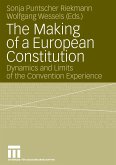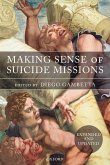Fifty years ago, the leaders of six European states signed the Treaty of Rome, creating the European Economic Community and launching the process of European integration. From that starting point evolved today's European Union (EU), the most successful example of institutionalized political cooperation in history. The EU now encompasses a much broader array of responsibilities than originally planned, its membership has widened to 25 countries, and its legislation and jurisprudence
has come to supersede national law. Contestation has accompanied success, however, and the intense debate in many European countries over the EU Constitution throughout the course of 2005 revealed deep divisions between and within European countries around issues such as EU institutions, the elusive
European identity, a European economic malaise, and the role of the EU as a world power. Was the constitutional crisis a turning point for European integration? This volume argues that the EU today may be at a crossroads--not because of the failed referenda but rather because of the unresolved tensions in European governance not banished with the referenda's defeat. Meunier and McNamara's collection is the first to comprehensively examine these challenging issues using the tools of historical
institutionalism to analyze the past and future political and institutional trajectory of the European Union across a wide variety of policy areas. Together, the volume's authors provide a remarkably coherent theoretical approach to the key questions facing Europe, drawing a portrait of the EU today
that reveals a robust, but not invulnerable, set of institutions and practices
Hinweis: Dieser Artikel kann nur an eine deutsche Lieferadresse ausgeliefert werden.
has come to supersede national law. Contestation has accompanied success, however, and the intense debate in many European countries over the EU Constitution throughout the course of 2005 revealed deep divisions between and within European countries around issues such as EU institutions, the elusive
European identity, a European economic malaise, and the role of the EU as a world power. Was the constitutional crisis a turning point for European integration? This volume argues that the EU today may be at a crossroads--not because of the failed referenda but rather because of the unresolved tensions in European governance not banished with the referenda's defeat. Meunier and McNamara's collection is the first to comprehensively examine these challenging issues using the tools of historical
institutionalism to analyze the past and future political and institutional trajectory of the European Union across a wide variety of policy areas. Together, the volume's authors provide a remarkably coherent theoretical approach to the key questions facing Europe, drawing a portrait of the EU today
that reveals a robust, but not invulnerable, set of institutions and practices
Hinweis: Dieser Artikel kann nur an eine deutsche Lieferadresse ausgeliefert werden.








